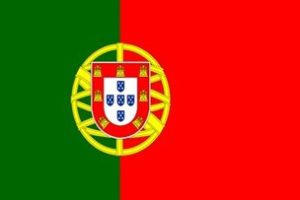PORTUGAL

PORTUGAL
Portugal, officially known as the Portuguese Republic, graces the western edge of the Iberian Peninsula in southwestern Europe, hugging the beautiful Atlantic coast. With a history steeped in grandeur, Portugal’s landscapes evoke both Northern European and Mediterranean charm. Its northern frontier is characterized by rugged, rocky terrain and sparsely inhabited areas, offering untamed beauty. Contrastingly, the southern expanse, including the Faroe Islands, welcomes you with a warm and fertile embrace. Nestled between the Tagus and Mondego rivers, the Estrela Mountains, aptly named the “Star Mountain Range,” claim the highest peak on the mainland.
In the mists of time, during the 1st millennium BC, the Celtic Lusitani found their way to the Iberian Peninsula, leaving indelible marks on the land. Yet, national legend weaves a captivating tale suggesting that Lisbon, the capital, was not founded by the Celts, but by the intrepid Greek hero Odysseus. According to this tale, Odysseus stumbled upon a rocky landscape near modern-day Lisbon during his legendary wanderings. Mesmerized by the beauty of the land, Odysseus lingered there, drawing the affections of the nymph Calypso. Heartbroken by his departure, Calypso is said to have transformed into a snake, her coils becoming the iconic seven hills of Lisbon. However, even if Odysseus graced this land, it was already the cherished home of the Lusitani.
The Lusitani tribes engaged in generations of conflict with the Romans before finally succumbing to the might of the Roman Empire. Under Roman rule, important cities and ports took root, leaving a lasting imprint. The name “Portugal” itself bears the legacy of this era, derived from “Portus Cale,” a settlement near the mouth of the Douro River, which is now embodied by the vibrant city of Porto. Subsequently, the descendants of Romans and Lusitani experienced centuries under Moorish dominion before reclaiming their independence and establishing a kingdom that endures in history.
give me some important question and answers for this topic”PORTUGAL”
Q1: What is the capital city of Portugal, and what are some of its prominent landmarks? A1: The capital city of Portugal is Lisbon. Prominent landmarks include the Belem Tower, Jeronimos Monastery, and the historic district of Alfama.
Q2: What is the official language of Portugal, and what other languages are commonly spoken in the country? A2: The official language of Portugal is Portuguese. While Portuguese is the predominant language, English and Spanish are also commonly spoken, especially in tourist areas.
Q3: What are the main industries that drive Portugal’s economy, and how has the country’s economic landscape evolved in recent years? A3: Portugal’s economy is driven by industries such as tourism, agriculture, and technology. The country has undergone economic reforms in recent years, contributing to its recovery and growth.
Q4: Can you provide an overview of Portugal’s cultural heritage, including its traditional music, dance, and festivals? A4: Portugal has a rich cultural heritage, including Fado music, traditional folk dances like the Fandango, and vibrant festivals such as the Lisbon Carnival and Fado Festival.
Q5: What are some of Portugal’s famous culinary dishes, and how has its cuisine been influenced by regional factors and history? A5: Portugal is known for dishes like Bacalhau (salted codfish), Caldo Verde (green soup), and Pastel de Nata (custard tart). The cuisine reflects influences from both Mediterranean and Atlantic flavors.
Q6: How has Portugal’s history shaped its present-day identity, and what are some key historical events that have had a lasting impact? A6: Portugal’s history includes its maritime exploration during the Age of Discoveries, colonial expansion, and the Carnation Revolution. These events have shaped Portugal’s identity and global influence.
Q7: What natural attractions and landscapes can be found in Portugal, and how do they contribute to the country’s tourism industry? A7: Portugal boasts diverse landscapes, including the Douro Valley vineyards, the Algarve’s picturesque beaches, and the lush Azores and Madeira islands. These attractions contribute significantly to Portugal’s tourism industry.
Q8: How is Portugal addressing environmental sustainability and renewable energy initiatives? A8: Portugal has been making strides in environmental sustainability, including investments in renewable energy. The country aims to achieve carbon neutrality and reduce its environmental footprint.
Q9: What is the significance of the Port wine industry in Portugal, and which regions are known for producing this iconic wine? A9: The Port wine industry is significant in Portugal, with the Douro Valley being a renowned region for its production. Port wine is a fortified wine with a rich history and international acclaim.
Q10: How does Portugal participate in international affairs and collaborations, and what role does it play in organizations like the European Union? A10: Portugal is an active participant in international affairs, being a member of the European Union and other international organizations. It plays a role in shaping EU policies and fostering diplomatic relations.

